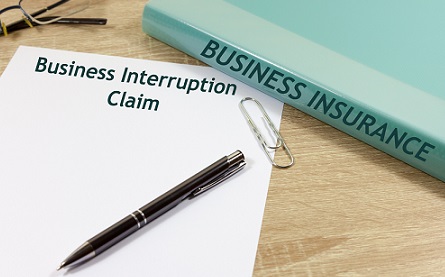Has your insurance company denied your claim for business interruption insurance during COVID-19? If so, Susan Hopcraft from lawyers Wright Hassall explains the legal position.
 Despite its importance in slowing the spread of COVID-19, the government lockdown has taken its toll on many businesses, with some losing their entire revenue overnight.
Despite its importance in slowing the spread of COVID-19, the government lockdown has taken its toll on many businesses, with some losing their entire revenue overnight.
It’s a harsh reality that business owners predicted, as many took the decision to add business interruption (BI) cover to their already expensive insurance, safe in the knowledge they would be covered for any loss of earnings.
However, the cover hasn’t had the desired effect for many businesses and the government have been urged to get involved, as a growing number of refused claims are recorded.
Starting class actions could offer one solution, but businesses must do more to push their claims and the government’s financial regulator (the FCA) is now taking an active interest. There may be policies in place that apply to coronavirus losses, for which additional premiums will have been paid.
What are BI policies?
Standard business interruption covers a business for loss of income during periods when they cannot carry out business as usual due to physical damage: typically, damage to the premises caused by a storm, fire or flooding.
The insurance might compensate the business for any increased running costs and/or shortfall in profits for a set period and financial limit.
Some policies have extensions that might apply to coronavirus losses, for which additional premium will have been paid. There are two main likely clauses:
Business Interruption (specific illnesses)
Most extensions cover specific diseases, listed in the cover. These are diseases that are well known and understood. COVID-19 will not be named though, and this is likely to lead insurers to deny claims.
Businesses will feel aggrieved by that when they bought cover for this type of circumstance. The argument will be that the clause was intended to cover disease closure and the clause could not have named a disease that did not exist.
Some disease extensions are more general and do not specify certain diseases. In these cases, business interruption cover for COVID-19 is more likely to apply.
Usually COVID-19 must have been present at the premises or within a short radius. This is because business interruption is supposed to cover the short period while premises are shut down for a deep clean.
Business Interruption (non-damage denial of access)
Another relevant extension is cover for losses as a result of people not being able to access the premises due to specific circumstances, such as the police cordoning off an area due to an event such as terrorism.
The clause might cover inability to trade due to a government restriction and cover loss, again depending on the wording.
Another issue arising out of businesses being temporarily closed is the need to let your insurer know if the insured premises are unoccupied.
There may be a clause in your property insurance that requires the premises to be occupied. However, the Association of British Insurers (ABI) has suggested that insurers will be more flexible over the requirements around these types of clause under current circumstances.
The current situation
For some businesses, the business interruption extension might be worded to enable recovery of losses due to coronavirus closure. For others, particularly where COVID-19 is not included in a specific list, cover may well be denied.
Insurers will say they do not cover pandemics and do not charge premiums commensurate with that exposure. They might also say that it is for government to bail out businesses, for example, by the furlough scheme because this pandemic is so widespread and unexpected that it falls outside what private insurance ought to cover.
Insureds will say that they were paying extra premiums to extend cover to deal with precisely this sort of risk. Just because the disease was not known, that should not exclude them from cover.
The government has asked the insurance industry certain questions. Mel Stride, the Chair of the Treasury Select Committee, wrote to the ABI on 25 March asking for data and information on the industry’s response to coronavirus.
The ABI replied and, swiftly after that, the FCA announced that it intends to bring action against certain insurers for a decision on whether COVID-19 losses are covered.
Protecting your business
There’s little comfort that can be offered to those businesses who feel cheated by the refusal to pay out on business interruption cover, especially as many feel they have done everything they can to protect themselves.
During this uncertain period, the money secured from a claim could make all the difference to the long-term security of a business.
If your business closes or is otherwise disrupted by coronavirus, you might have business interruption insurance to make up the deficit.
Your insurance broker can give you a preliminary view but, if you have tried that and the insurer has declined your claim, then contact a team of experienced lawyers for advice.
 Susan Hopcraft is a partner in the Dispute Resolution team at Wright Hassall. She deals with contract claims, including service agreements and restrictive covenants, insurance policies and issues relating to guarantees, warranties and breach of confidence. Susan also advises on professional negligence claims against valuers, surveyors, solicitors, brokers and accountants, fraud issues and recoveries for lenders.
Susan Hopcraft is a partner in the Dispute Resolution team at Wright Hassall. She deals with contract claims, including service agreements and restrictive covenants, insurance policies and issues relating to guarantees, warranties and breach of confidence. Susan also advises on professional negligence claims against valuers, surveyors, solicitors, brokers and accountants, fraud issues and recoveries for lenders.
Photo: Susan Hopcroft